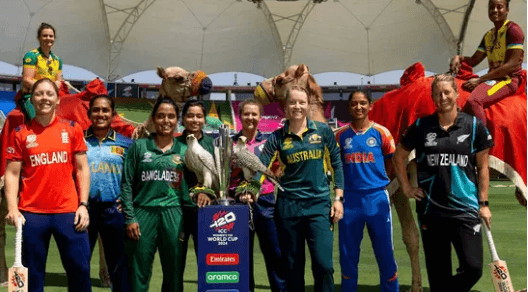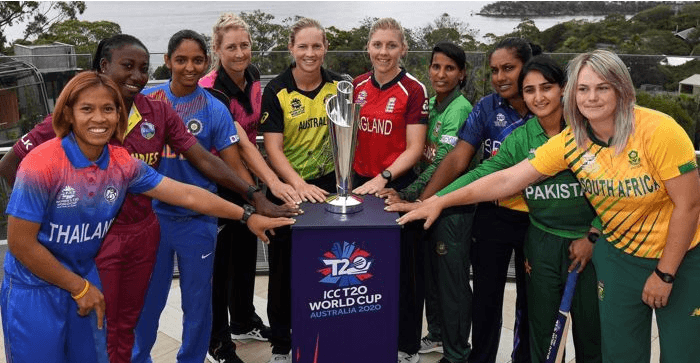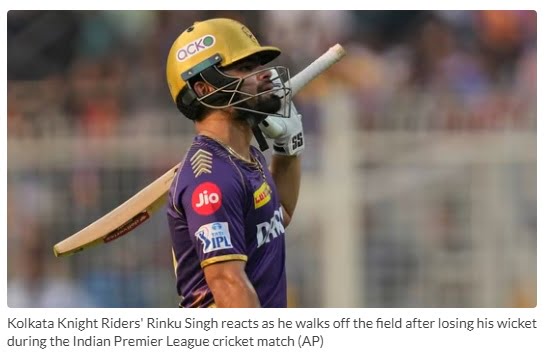More Than Just Heartbreak

Captains Call for Change in Women’s Cricket
As Nigar Sultana delves into the details of how more than the players themselves, their family, friends, and fans were left heartbroken by the relocation of the 2024 T20 World Cup from Bangladesh, Chamari Athapaththu and Heather Knight nod in agreement. They know firsthand what winning a home tournament can do for the growth and visibility of women’s cricket. Knight experienced this firsthand in 2017, leading England to victory at a packed Lord’s. More recently, Athapaththu-inspired Sri Lanka upset India, in front of a capacity Dambulla crowd, to shake up a previously one-sided rivalry.
The visibility that accompanies such victories is crucial for growing women’s cricket. A tournament like the ICC T20 World Cup has already elevated the usual attention these players receive, as Scotland’s Kathryn Bryce noted in a press conference. This increased attention provides a platform for addressing bigger concerns regarding the game’s governance.
England’s captain, Heather Knight, called for better governance of the sport, emphasizing the need for a well-thought-out plan to shape women’s cricket over the next five to ten years. She highlighted the importance of proper governance to avoid the issues plaguing the men’s game and ensure the growth of women’s cricket.
Even Australia captain Alyssa Healy joined the conversation, urging the room to pay attention to the topic. The Hundred and the Women’s Caribbean Premier League narrowly avoided scheduling conflicts this year, while the Women’s Premier League has found its own distinct window. However, the growing number of international games has made it challenging to avoid overlaps in the calendars, which are not as packed as in the men’s vertical. Knight herself had to withdraw from the second season of the WPL due to national duties.
Knight emphasized the importance of balance between franchise cricket and international duties. She highlighted the potential risks of losing players to franchise cricket and stressed the need for proper governance to ensure both thrive. She also acknowledged the pay disparity around the world and called for efforts to ensure all teams have the best players.
Harmanpreet Kaur’s public demand for more Test cricket and multi-team tournaments has further fueled the discussion. The T20 World Cup is expanding to 12 teams in the next edition and 16 by 2030, and the sport is set to be included in the 2028 LA Olympics.
Sophie Devine, a veteran of nine T20 World Cups, has yet to play a red-ball game in her 18-year international career. Echoing Harmanpreet and Knight, she called for more contextualized cricket, emphasizing the importance of multi-format series to maintain relevance in the international game.
Bryce’s Scottish teammates are mostly semi-professionals and rely on English domestic competitions for exposure and income. In other parts of the world, existing contracts are far from sustainable, even for ICC full-member boards. Sri Lanka, for example, has monthly retainers ranging from approximately USD 340 to USD 1000 for 25 contracted cricketers, which pales in comparison to match fees.


Athapaththu boldly demanded equal pay for equal effort. She expressed hope that all countries would increase contracts and match fees for women’s cricketers, providing them with security and appreciation.
The ICC’s announcement of prize money equality is a significant step in the right direction. The 2024 World Cup will feature a whopping USD 2.34 million check for the winners, a testament to the commitment to equal prize money for equal effort.
-
Discovery Is Where Fragrance Love Truly Begins
Views: 101 At The Perfume Society, we believe discovery is where fragrance love truly begins. Our expertly curated Discovery Boxes
-
Va Va Vanilla by Sarah Baker
Views: 9 Va Va Vanilla by Sarah Baker composed with perfumer Margaux LE PAIH GUÉRIN of FLAIR is creamy, round,
-
She Went to Paris! | Perfume Posse
Views: 13 Carolyn just got back from a week in Paris. It was a huge bucket-list item – she hadn’t
-
Discovery Is Where Fragrance Love Truly Begins
Views: 101 At The Perfume Society, we believe discovery is where fragrance love truly begins. Our expertly curated Discovery Boxes





